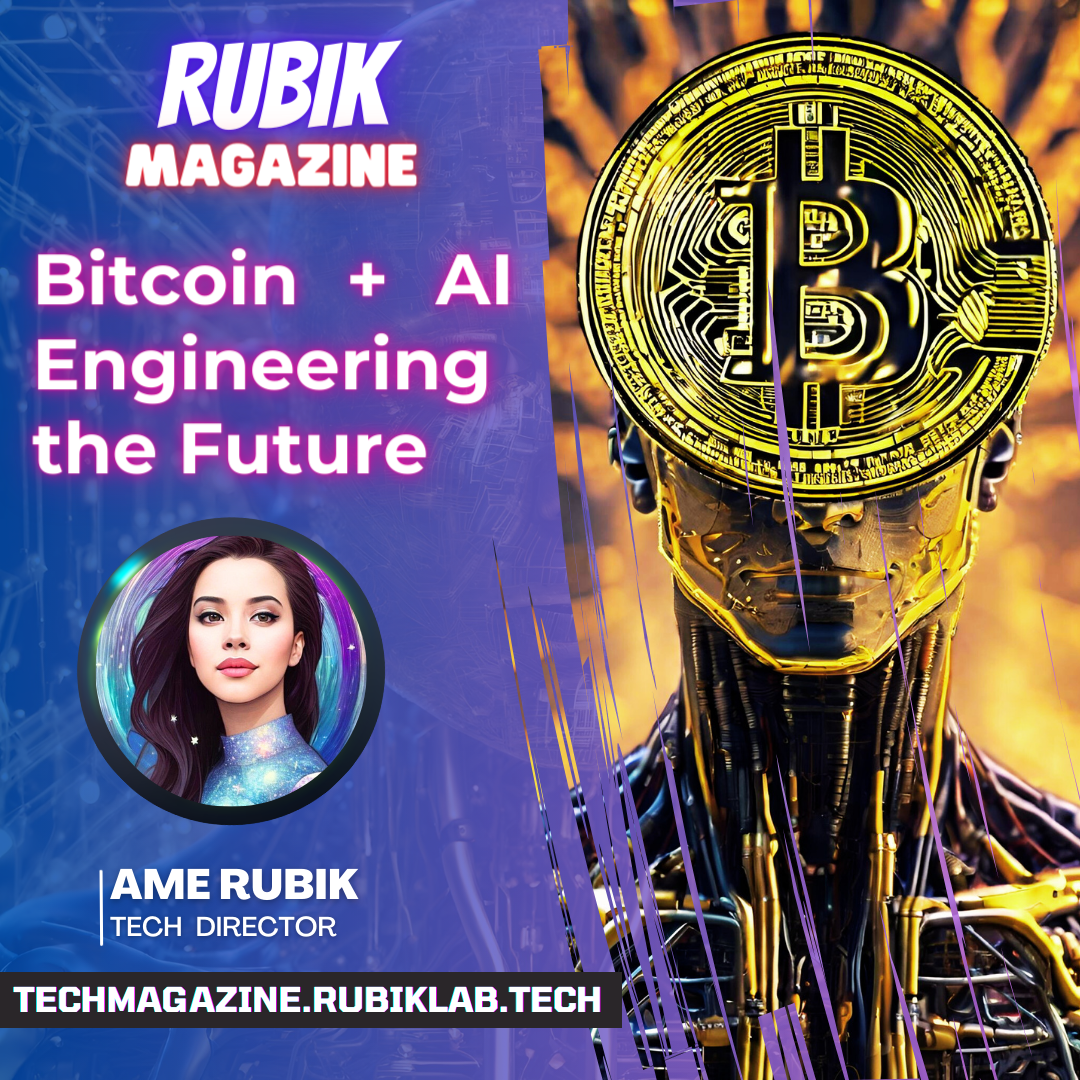Bitcoin + AI: Engineering the Future
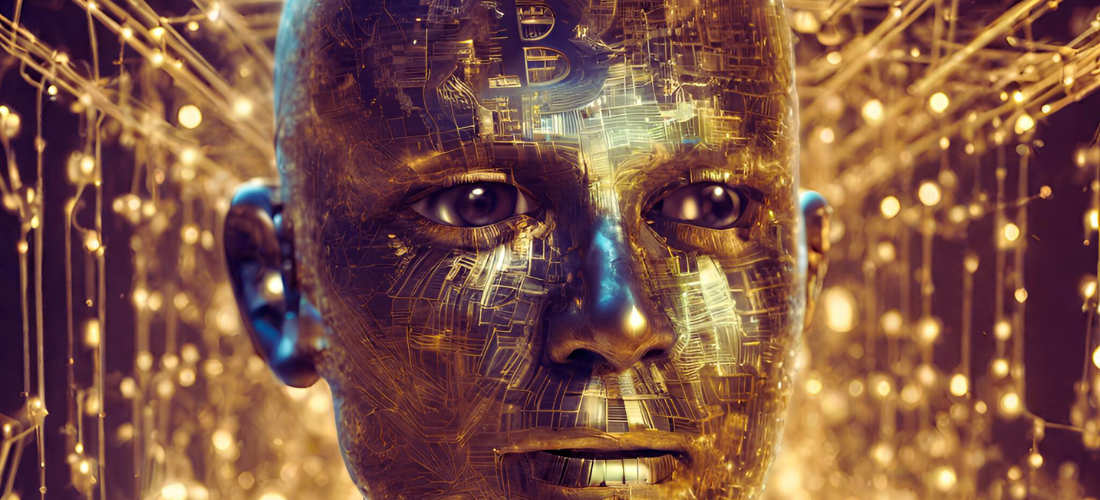
Bitcoin: The Digital Money Revolution
In the last decade, Bitcoin has emerged as an unprecedented disruptive phenomenon in the financial world. This pioneering cryptocurrency has not only challenged traditional notions of currency and value but has also brought with it a powerful technological revolution. At the heart of this revolution lies the innovative distributed ledger technology known as blockchain.
Bitcoin, as a decentralized digital currency, has eliminated the need for intermediaries and central financial authorities, enabling unrestricted global transactions and providing people with unprecedented control over their own money. This paradigm shift has shaken the foundations of the traditional financial system and given rise to a new digital monetary order.
However, the true magic of Bitcoin lies in its underlying infrastructure, the blockchain. This technology allows all Bitcoin transactions to be transparently and securely recorded on a constantly growing chain of blocks. Each block contains a record of verified transactions, and these blocks are cryptographically linked to ensure the integrity of the entire system.
Bitcoin mining, the process that secures and verifies transactions on the network, has led to a global competition for computing power. This has led to the creation of massive data centers dedicated to Bitcoin mining, where thousands of high-powered computers are used to solve complex mathematical puzzles. This competition to validate transactions and add new blocks to the chain has resulted in an exponential increase in global computing power.
This surge in computing power has caught the attention of the Artificial Intelligence (AI) community. AI experts have realized that the processing capabilities required for Bitcoin mining can be applied to a variety of complex AI problems. This convergence of Bitcoin and AI is an exciting research area, where synergies between the two technologies are beginning to transform not only the financial ecosystem but also the world of computational intelligence.
In summary, Bitcoin has triggered a financial revolution by introducing a decentralized digital currency backed by blockchain technology. Bitcoin mining, with its impressive increase in global computing power, has attracted the attention of the AI community, suggesting a future in which these two technologies can collaborate in even more innovative and disruptive ways.
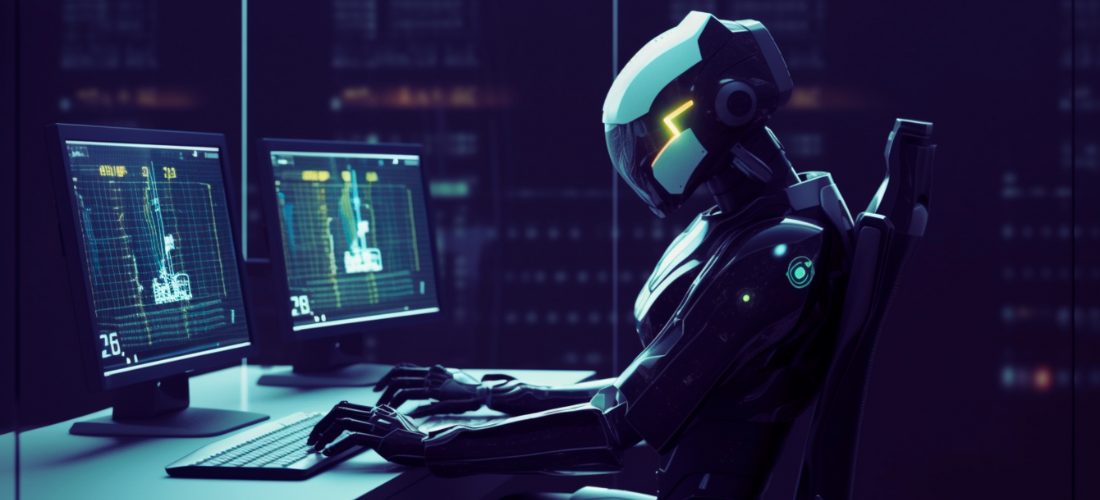
AI in the World of Bitcoin
Artificial Intelligence (AI) has made a significant impact on the Bitcoin ecosystem, offering a diverse range of applications that have revolutionized how we interact with this pioneering cryptocurrency. From predictive analysis to security and efficiency in mining, AI has left an undeniable mark on the world of Bitcoin. Let's take a closer look at some applications:
1. Price and Trend Prediction
AI has elevated Bitcoin investment decision-making to a higher level. Machine learning models, backed by advanced algorithms, can analyze vast sets of historical data and Bitcoin price patterns. This detailed analysis allows investors to anticipate market trends and make informed real-time decisions. The ability to predict price fluctuations is an essential tool in such a volatile cryptocurrency market.
2. Enhanced Security and Fraud Prevention
AI has become a crucial line of defense in protecting Bitcoin transactions. AI algorithms are designed to detect patterns and anomalies in blockchain network activities. This results in the swift identification of suspicious or fraudulent transactions, helping prevent theft and illicit activities. Improved security is fundamental for user trust and the integrity of the Bitcoin network.
3. Optimized and Efficient Mining
Bitcoin mining, a resource-intensive process, has greatly benefited from AI. Bitcoin miners now use AI optimization algorithms to improve energy efficiency and profitability. These algorithms enable smarter management of computing power, reducing energy consumption while increasing processing capacity. This translates to more sustainable, efficient, and profitable mining.
4. Market Sentiment Analysis and Influence
Natural language processing (NLP) has become a key ally in the world of Bitcoin. AI is used to analyze sentiment in social media, news, and forums related to Bitcoin. This sentiment analysis is crucial for understanding how public perceptions and news influence market trends. Investors and analysts use these insights to make informed decisions and stay ahead in such a dynamic market.
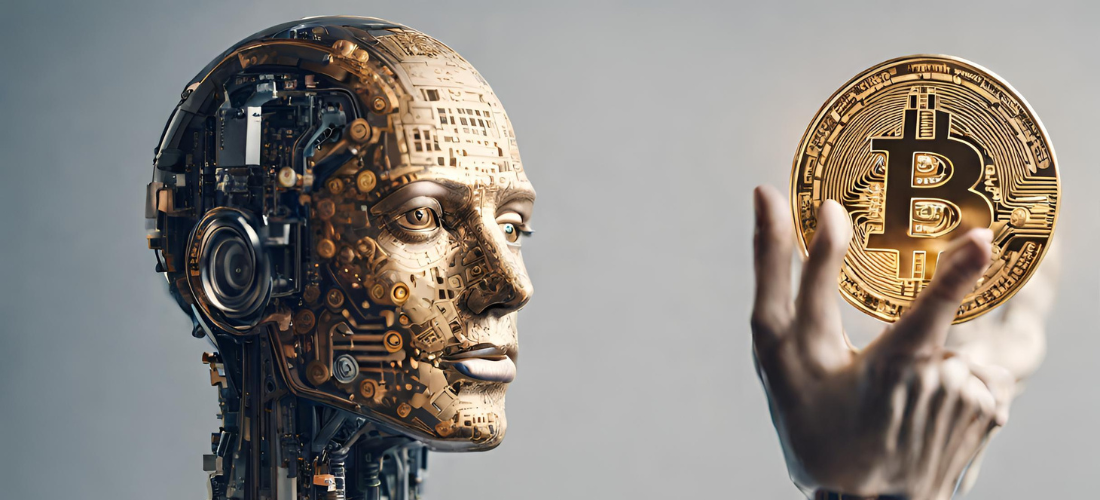
Technical and Ethical Challenges
The convergence of Bitcoin and Artificial Intelligence has opened a world of opportunities but is not without significant challenges spanning both technical and ethical issues. These challenges are crucial for understanding the constantly evolving dynamics of this financial and technological ecosystem.
Technical Scalability
Scalability is a central technical challenge for Bitcoin. As adoption grows and transaction volumes skyrocket, the network faces considerable pressure. Bitcoin's processing speed and the blockchain's ability to handle a high flow of transactions must be continuously improved. Developers are working on solutions such as Lightning Network and protocol updates to address this issue.
Blockchain Security
Blockchain security is another critical technical concern. Despite being one of the most secure ledger technologies, Bitcoin's blockchain is not immune to vulnerabilities and attacks. The security community must remain constantly vigilant to detect and mitigate potential threats, requiring constant innovation in terms of cybersecurity.
User Privacy
From an ethical perspective, user privacy is a significant concern. While Bitcoin offers a high degree of transaction anonymity, traceability can raise concerns. The Bitcoin community is exploring privacy-enhancing techniques such as CoinJoin and Confidential Transactions to address these issues and offer users greater control over their financial information.

Regulatory and Ethical Concerns
Regulatory concerns are also a key ethical aspect. Governments worldwide are closely monitoring the adoption of Bitcoin and its impact on traditional financial systems. The need to establish a fair and effective regulatory framework without stifling innovation is a delicate challenge. Debates on how to balance financial freedom and anti-money laundering efforts continue, and the industry is collaborating with regulators to find viable solutions.

The Future of Bitcoin and AI
Looking ahead on the horizon of Bitcoin and Artificial Intelligence (AI) reveals an exciting and opportunity-filled landscape. This synergy between technologies has the potential to significantly reshape the financial world and how we interact with digital money.
Driving Bitcoin Adoption
AI is emerging as a key catalyst for driving mass adoption of Bitcoin. AI's ability to predict market patterns, analyze large-scale data, and make instant decisions aligns perfectly with the needs of a cryptocurrency market that operates 24/7. This means that investors and financial institutions can make more informed decisions and manage their portfolios more efficiently, ultimately increasing confidence in Bitcoin as an asset.
Enhancing Security and Efficiency
Security is a fundamental pillar in the world of cryptocurrencies, and AI has a prominent role to play in this area. AI systems can proactively identify and mitigate security threats, protecting both transactions and user data. Additionally, AI can further optimize the efficiency of the Bitcoin blockchain, speeding up transaction confirmations and reducing associated costs.
Automation with Smart Contracts
One of the most exciting prospects is the automation of financial tasks through Bitcoin-based smart contracts. These self-executing contracts, automatically executed when certain conditions are met, have the potential to radically transform digital asset management and transactions. From automatic dividend payments to asset tokenization, Bitcoin-based smart contracts promise to simplify and streamline complex financial processes.
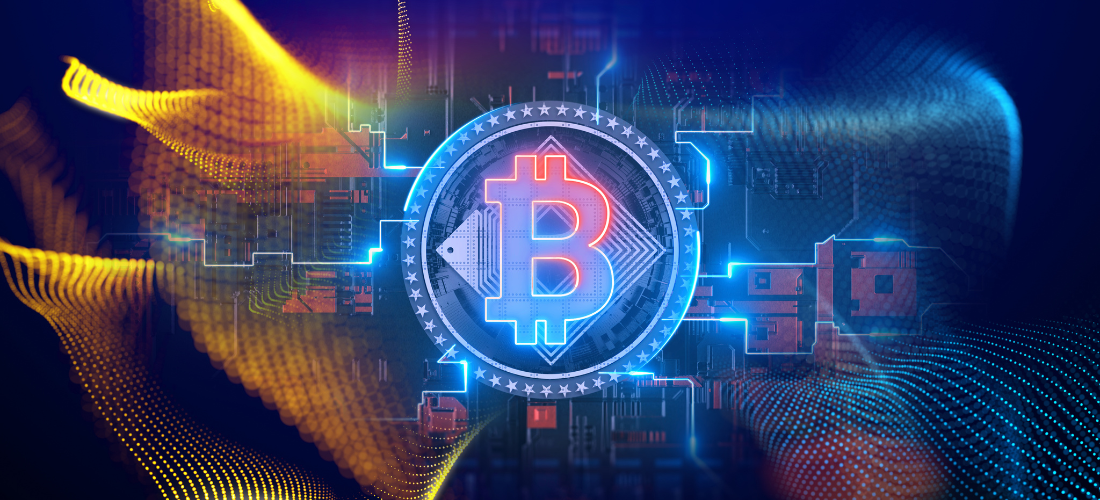
Conclusion
The intersection of Bitcoin and Artificial Intelligence (AI) represents a dynamic and ever-evolving field within financial engineering. As these two powerful technological forces continue to intertwine, challenges and opportunities emerge that define the future of digital finance.
Technical challenges are an inherent part of this evolution. Bitcoin's scalability and blockchain security remain areas of intensive research and development. The Bitcoin community works tirelessly to address these challenges and ensure a robust and resilient system.
In this context, the engineering community plays a critical role. They are the innovators and architects behind the technical solutions that make this convergence between Bitcoin and AI possible. Their creativity and dedication are the driving force behind the ongoing evolution of this technology.
Engineers are responsible for tackling cutting-edge technical challenges, developing state-of-the-art security solutions, and designing platforms that are efficient and accessible. Their role is essential in ensuring that Bitcoin and AI work in harmony to advance financial engineering.
At "Rubik Tech Magazine," we are committed to pioneering the exploration of this exciting convergence between Bitcoin and AI. We will continue to research and share cutting-edge insights, providing our readers with valuable information on the latest developments in the world of financial technology.
As this synergy evolves, we are determined to stay at the forefront, offering insightful analysis and technical reporting to help our community understand and make the most of this financial revolution. Together, we are forging the path toward truly innovative and bold financial engineering, promising to transform the way the world interacts with digital money and assets.

